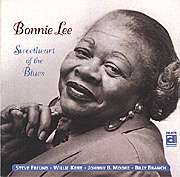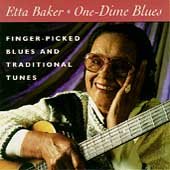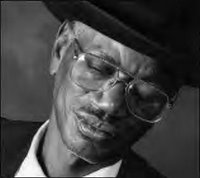
It's been just over a year since Paul Pena passed away at the age of 55, and I finally got my hands on his recording - "New Train" (the CD cover pictured at right).
I guess I must have subconsciously known about Paul Pena for years, his name has been around in Blues circles since the early 1970's, but it wasn't until I read his obit last year that I really took notice...
Paul Pena was a singer, guitarist, bass player, and songwriter. He had a hard life, having been born with a serious case of congenital Galucoma which left him legally blind from the age of 10 onward. He still became a talented musician, playing in the band of Blues icon T-Bone Walker during the early 70's.
Paul recorded 2 albums under his own name as leader:
"Paul Pena", released in 1972 by Capitol Records (currently out of print)
"New Train", recorded in 1973, released in 2000 by Hybrid Recordings
Following the recording of his 2nd album (New Train, 1973)he suffered a sort of blacklisting in the industry due to an unscrupulous producer (Albert Grossman) who refused to release the recordings and also would not release Paul from his binding contract. If it weren't for a stroke of luck and a hit song to provide him with royalty checks, Paul Pena would have starved - Pena just happens to be the writer of the song "Jet Airliner" which was a big Top 10 hit for
Steve Miller in 1977. He also happens to be the author of a number of other interesting songs.
One of those songs, "Gonna Move", sounded much too familiar to me the minute I heard the rhythm track at the start of the song, and then I realized that I have been hearing the Derek Trucks Band and Susan Tedeschi (Derek's wife) performing that song as a regular part of their live repertoire.
Another moving song (no pun intended) is the title track - "New Train",
a song of spirituality and a hope for peace, here are the lyrics:
"I remember a time back in the big city near my home
To the clocks tolling the morning
'Hear the sound of a Gospel choir, singing soft and low
On a rainy day the sun was dawning
But it's been a long long time, since I've heard the rhyme
Of a time and a season hidden in the past
And the days are growing harder, time is growing shorter
Brother hating brother spreading fast...
You gotta get on the new train and ride
We gotta find our way to freedom
You gotta get on the new train and ride
Buy our ticket for a brand new season
Trippin down south in the Easter time
See the folks coming out from worship
Everyone talking about the glories of the resurrection
While all of them thinking that they're perfect
When there comes a helpless man
who's down and needs a hand
And the will of Christ is done by one from prison
So he gets a hand from one, and is condemned by some
but divine love we all have and this he lays on him
You gotta get on the new train and ride
We gotta find our way to freedom
You gotta get the new train and ride
Buy our ticket for a brand new season
As I look back on my history
See a house with children playin' in the street
Mama sittin' cross legged tellin' us
Be our brother's keeper
And I take my strength from daddy's song
You know I love what I see
'Cause it's taught allot to me
Made me strong and helped this boy understand
That this world is here for giving
And life is here for living
Let the choir sing and let me sing it with the band
You gotta get on the new train and ride
We gotta find our way to freedom
You gotta get on the new train and ride
Buy our ticket for a brand new season"
[copyright 1973, 2000 Paul Pena]
For more information on Paul Pena:
The official Paul Pena website
Article on Paul in CV MusicWorld
Paul Pena memorial page on Friends of Tuva website
Paul Pena entry in Wikipedia






